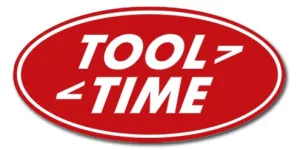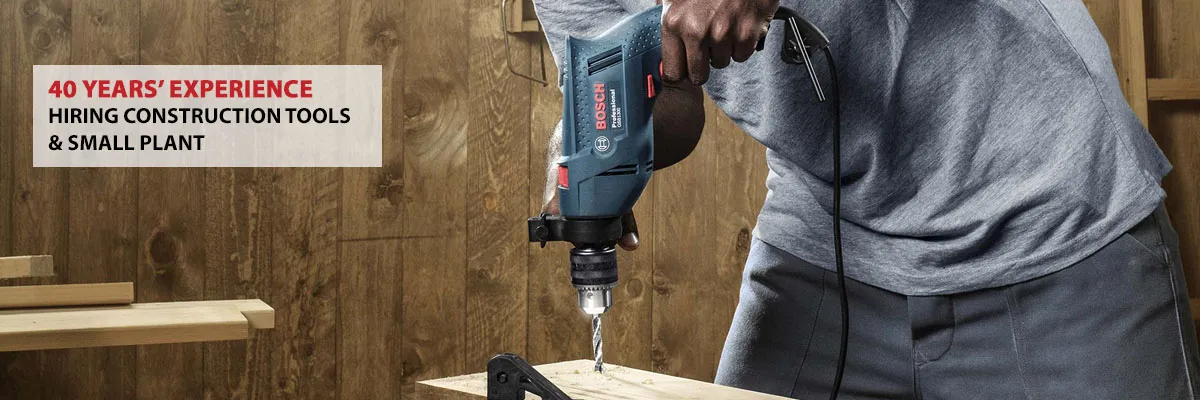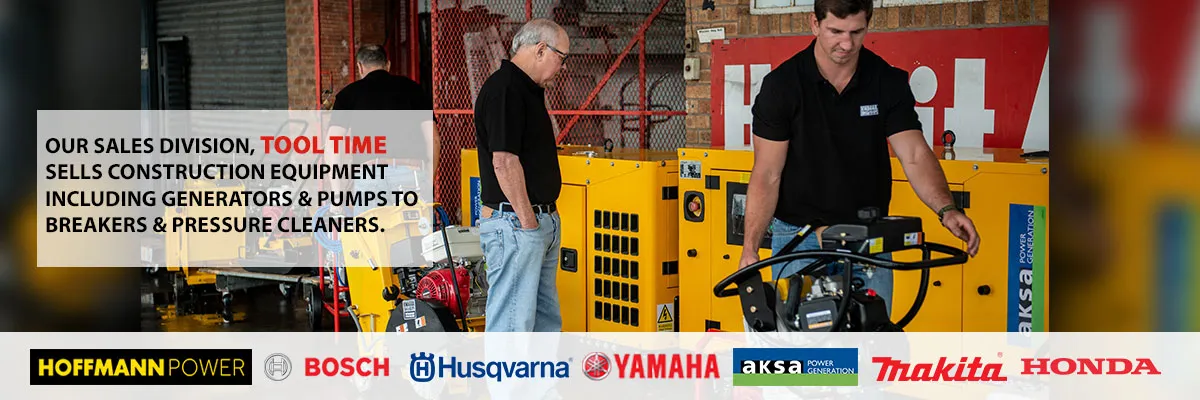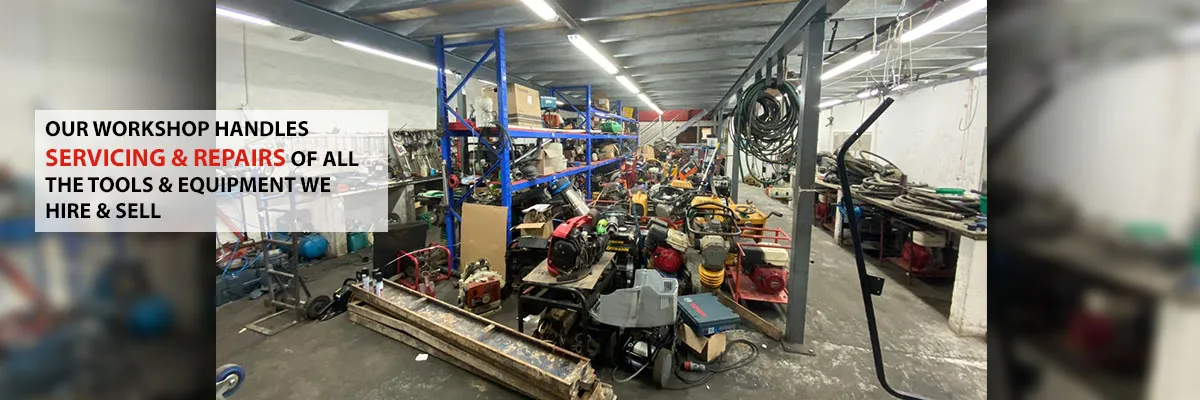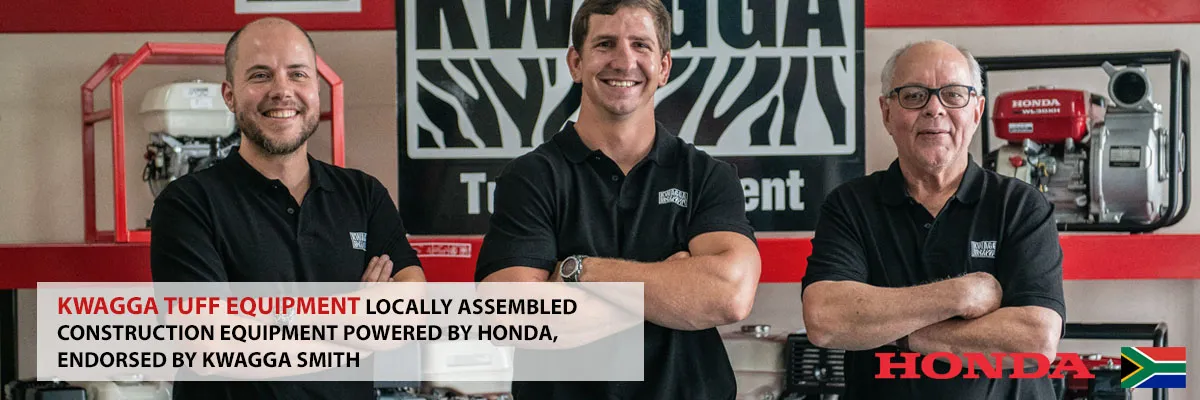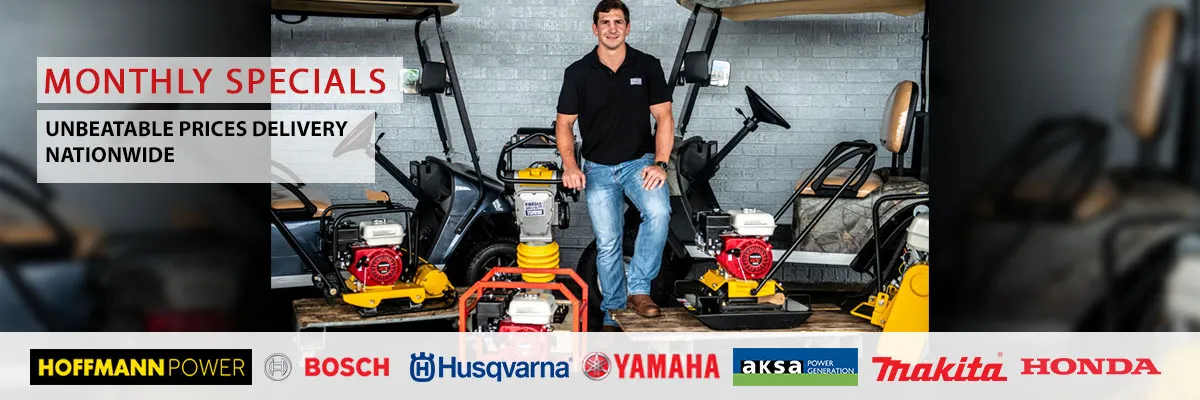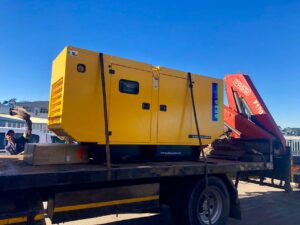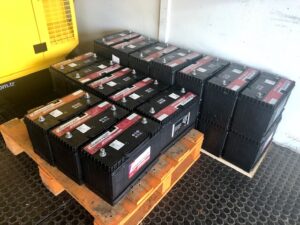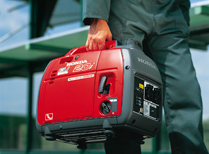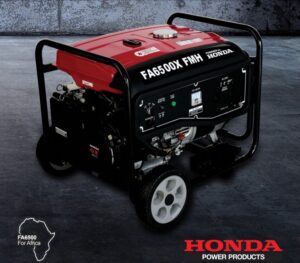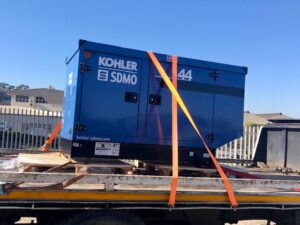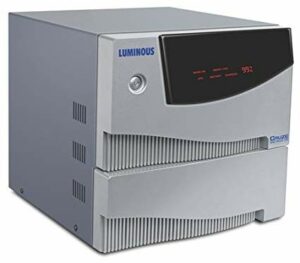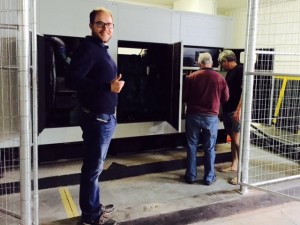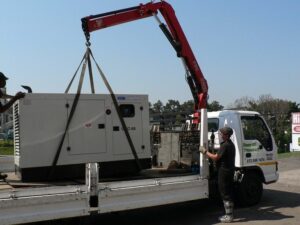When load shedding is a constant what is your alternative power solution? As experts in generators, inverters and back-up power, we answer all your questions and unpack the various options available to you through Hire It’s sales division, Tool Time.
OFFICE BACK-UP
There are a wide variety of backup options ranging from different types of generators, solar systems and backup inverter battery systems, these range in a number of different types and quality levels. So this is why it can be difficult for end users to understand the different options and the pros and cons. The most important information is to understand the application. As a general rule, battery inverter systems are handy for backing up lights and computers for a home or office environment for a number of hours depending on the size. This is good for the office worker because it means that business can carry on during load shedding, and with any luck the batteries will last until the power comes back up. Battery and solar systems are not the correct option for running machinery like a manufacturing operation.
MANUFACTURING OPERATION
To backup a manufacturing operation, a Diesel backup generator will be the best bet. This is mainly because batteries are not suited to running machinery or heat elements, they get used up too quickly. The next question is what size of generator to go for, an electrician will generally be required to evaluate the power draw to size the correct generator. We find the best way to do this is to install a recording device onsite, and record the power draw over the period of a week to get an accurate idea of the power requirements. Another factor to consider is that perhaps the customer only wants to run certain parts of the operation to keep going during load shedding, and in this way can potentially get away with a smaller generator.
How much should you invest in alternative power and will the ROI will offset this cost?
1. Solar Hybrid systems, which commonly involves businesses using a combination of any or all of Eskom power, solar power, battery power as well as a generator for when all of the former aren’t able to supply enough power. The initial outlay for these types of systems is high, but the theory is that the savings made on power usage will pay back in anywhere between 5 and 15 years. There is also currently a question mark over whether Eskom will allow users to add into the grid and even make money out of ceating power, or get penalised for it. Solar hybrid systems are the greenest option for businesses, and does make sense for office backup or shops which have fairly modest power requirements compared to manufacturing and industry. It is my opinion though, that the solar hybrid technology is not quite at the right level or price point to be viable for the majority of the market, it is quite expensive, and also batteries need to be replaced, which means more costs down the line. Lead Acid batteries have a life span of 3 to 5 years. The new Lithium Ion batteries have nearly double the life expectancy, but are triple the price roughly speaking. However, I believe that in time as demand increases and pricing improves, the solar hybrid system will become more viable.
2. Inverter Battery / UPS backup is a good option for small offices or homes that just want to run lights, computers and internet to keep production going during outages. Systems that can give 2 to 4 hours backup for a small office are fairly well priced. Things to bear in mind are that once the batteries run out, say for an extended blackout, then you are back in the dark. Also, batteries will need to be replaced in 3 to 5 years, so bear in mind further costs down the road. Other advantages of the battery inverter are that they are silent, unlike a generator option. Also, the power keeps going through the batteries continuously, so you don’t have the risk of surges or shut offs damaging electronic equipment like servers, computers etc.
3. Generator backup: Depending on the application and power requirements, there are a number of generator backup options for businesses, offices, factories, homes, shops etc. Pricing starts from around R7,000 for a small petrol generator, up to the millions of Rands for large Industrial Diesel sets. If the application is a home or business, how important is the noise factor? Silent generators are significantly more expensive than noisier open sets. Also, do you require auto start, or are you happy that someone can switch on a generator manually. Again the Autostart sets are more expensive. Using Eskom power is always the cheapest option, but businesses need to ask if production downtime justifies the expense of a generator. We have supplied generators for a number of businesses that have decided that a generator is indispensable, from Dentists to industrial chroming plants, dialysis clinics, shoe factories, fast food chains, chicken farms, halal meat processing plants etc
SALES SUPPORT, MAINTENANCE & WARRANTY
The majority of the generators that we sell come with a 1 year manufacturer’s warranty. Certain units in our industrial line up come with a 2 year / 2500 manufacturers’ warranty. A manufacturer’s warranty covers defects and part failure, it does not cover items such as damage, incorrect application etc. In the majority of cases, especially regarding portable units, they come with a carry in warranty. This means that the units need to be brought into our premises to evaluate them. We are able to offer call out assistance for a fee, as well as a service level agreement, and fueling agreement at additional charge. The pricing is dependent on the machine in question. Maintenance on these machines is fairly low, and is similar in many ways to a car engine. Changing oil once a year, or every 100 hours, is probably the most important. For units that work in dusty environments such as construction sites, blowing the air filter with a compressor or blower a few times a week makes a big difference to longevity. Other issues that we commonly see are generators that stand for many months at a time which is not good for any machine for a number of reasons. It is advisable to run a generator for about 10 minutes, a few times a month to keep it in working order.
KWAGGA GENERATORS
Most of our backup units, irrespective of the size, are designed to run for 6 to 8 hours on close to a full load. If the load on a machine is less, then the fuel consumption will be less, and therefore the run time can be higher. We recommend getting a jerry can or plastic petrol canister (available at most hardware stores), so that the machine can be filled up in the event of a very long outage. This is one of the major advantages of a generator over a battery system, the run time is much longer, and machines can be filled up with fuel. Also, in comparison to battery systems, diesel generators are far better suited to running machinery and mechanical applications. I must also mention as a matter of safety, never put petrol or diesel into a machine that is running, always switch it off when refueling.
Why the Kwagga range of generators are perfect for South African businesses?
Local is lekker and our Kwagga generators are locally assembled to keep pricing low but powered by Honda so that performance and reliability are guaranteed! Plus our Kwagga generators are endorsed by none other than World Cup Champion and Rugby legend himself, Kwagga Smith! In terms of backup generators, we are dealers for a number of industry leading brands, such as HONDA, Yamaha and HOFFMANN on the small portable generators, and SDMO and AKSA on the larger Diesel units. On the Inverter and UPS side, we are agents for Luminous, Sinetech, Omnipower, Enertec, Fiamm and more. We are able to backup all of the units that we sell, and have access to full range of spares. Our products are not the cheapest, however we can back them up, which is important. All machinery has the potential to break down, even Rolls Royce motor cars break down, so do space rockets. Its being able to fix them that is important. There are a number of cheap Chinese imports available in the market place, however in many cases there is no spares or service backup available.
“In my opinion the problems of Eskom will take a number of years to resolve. So businesses need to look at the next 3 to 5 years and weigh up the cost of down time compared to an alternative power source. When considering an alternative they should be aware of a number of factors such as the power requirements, noise levels, product quality and more.” – Richard Fraser, Sales Director, Hire It & Tool Time
